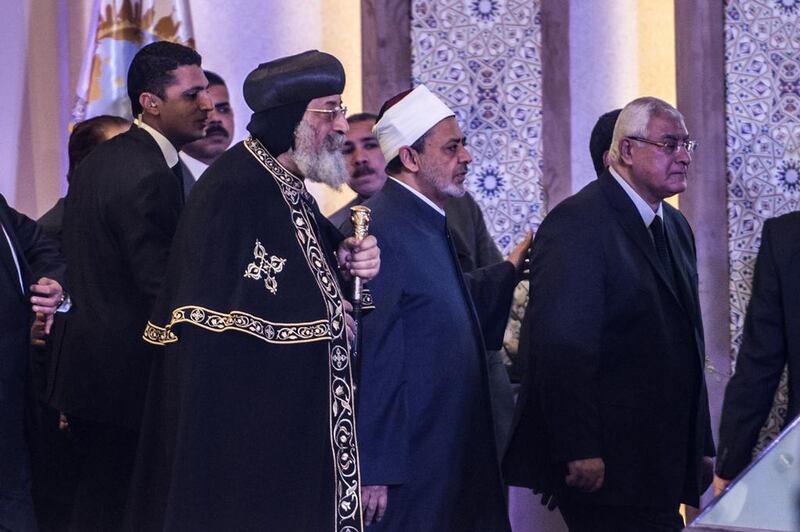CAIRO // The UAE aims to help Arab countries embrace diversity and integration through laws and education, to rid the region of its crises, officials say.
Muslim and Christian participants at the Freedom, Citizenship, Diversity and Integration conference in Cairo agreed that school curriculums, laws and religious speeches need to be modified to fight radicalism at its roots.
“We want to restore the hope of our youth that we will bring back our region to being a civilisational hub, and this requires all sects to unite under the concept of citizenship,” said Dr Ali Al Nuaimi, secretary general of the UAE’s Muslim Council of Elders, which co-organised the event.
Diversity in the region has empowered its civilisation in the past and therefore it should be preserved, said Dr Al Nuaimi, who is also director of the Abu Dhabi Educational Council (Adec).
For instance, diversity in the UAE was a source of power that helped in its development.
“Our leaders believe that the success of this model is not of it remaining [only] in the UAE. Other Arabs should benefit from it as well,” he said.
“And for that reason, we held this conference hoping that it won’t just end with a statement, but with actual projects for other countries to interact with, for them to amend their laws and curriculums.”
An example, he said, is the creation of recent initiatives by Sheikh Mohammed bin Rashid, Vice President and Ruler of Dubai, which have been directed to all Arab youth, not just Emiratis.
The first step is to get rid of tensions between religious leaders and to allow them to get to know each other, said Dr Ahmed Al Tayeb, Grand Imam of Al Azhar – the seat of learning for Sunni Islam – and chairman of the Muslim Council of Elders.
Moreover, religious leaders should work together to fight Islamophobia, as other religions will eventually be accused of causing turmoil across the world as well.
“They claim that Christianity gave birth to Crusades, and Islam spreads terrorism and blood, and the only solution is to wipe out religion from the face of the Earth,” Dr Al Tayeb said.
He said people have forgotten how many were killed in secular wars in the past century.
“Religion is the solution to the problem and not part of it,” said Pope Tawadros II of Alexandria and the Patriarch of the Holy See, the head of the Coptic Orthodox Church.
“Egypt and the Arab region have suffered and are still suffering from the wrong understanding of religion and ignorance of the other, which creates imaginary enemies,” he said.
Bishop Dr Munib Younan, president of the Lutheran World Federation, said open interfaith discussions between Muslim and Christian students in Jerusalem on a weekly basis has proved very useful in unifying them as members of one nation.
Inquiries raised about each other’s prophets and the true nature of each other’s religions lead to a common understanding “that we are one nation and we are facing the same challenges,” he said.
The problem in many Arab homes is that children are brought up believing in two contradicting concepts – one that says we should respect others and one that others are wrong and should be rejected.
“So sermons from churches and mosques should discuss what know about the other, and that we share equal citizenship rights,” said Dr Younan.
hdajani@thenational.ae







